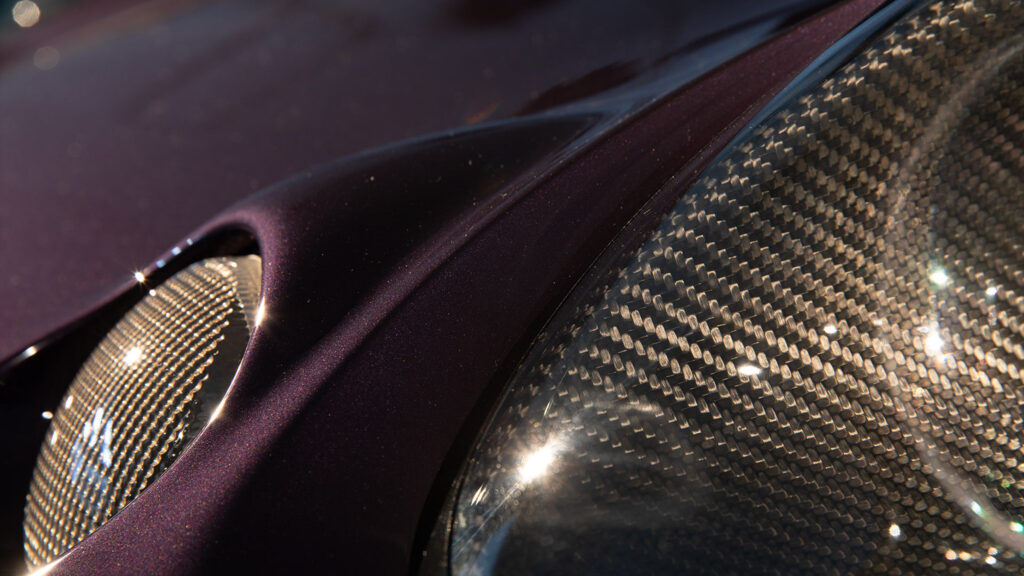New Lotus Elise Restomod by Analogue Automotive
British company Analogue Automotive has introduced its restomod called VHPK, based on the first-generation Lotus Elise. The car impresses with its incredibly low weight and original technical solutions.
Historical Lightness in a Modern Execution
The original Lotus Elise weighed less than 907 kg at its launch 30 years ago, which seems incredible against the backdrop of modern heavy SUVs. However, the new VHPK version is even more impressive: its mass is only 600 kg. For comparison, the lightest Mazda MX-5 weighs over 1000 kg, the Toyota GR86 weighs about 1300 kg, and the original 1996 Elise weighed 755 kg.
Carbon Embodiment
Such a low weight is achieved through the use of carbon fiber for the body, interior, wheels, and brakes. This is reminiscent of the innovative metal-composite material brakes used in early Elises, which were later replaced by heavier counterparts.

Central Seat and Balance
Another key change is the switch to a single centrally located seat. This not only reduces the overall weight but also improves weight distribution and pays homage to the history of the Elise, as a similar solution was used in early racing versions of this model.
Engine and Power
Analogue Automotive retained the original Rover K-series engine used in the S1 Elise, instead of the later Toyota ZZ or Honda K-series. The base 1.8-liter engine produced 120 hp, but the modified VHPD (Very High Performance Derivative) version develops 254 hp. This provides a power-to-weight ratio of 406 hp per ton.
Exclusivity and Availability
The company plans to release only 35 cars, which will be available for order from next year. The price has not been disclosed yet but is expected to be at the supercar level.
The VHPK restomod demonstrates how classic design and technical solutions can be combined with modern materials and engineering approaches. This project not only revives the legendary Elise but also sets new standards for restomodding, focusing on lightness, power, and authenticity. Such an approach may inspire other manufacturers to similar experiments, combining history with innovation.


 by
by 
